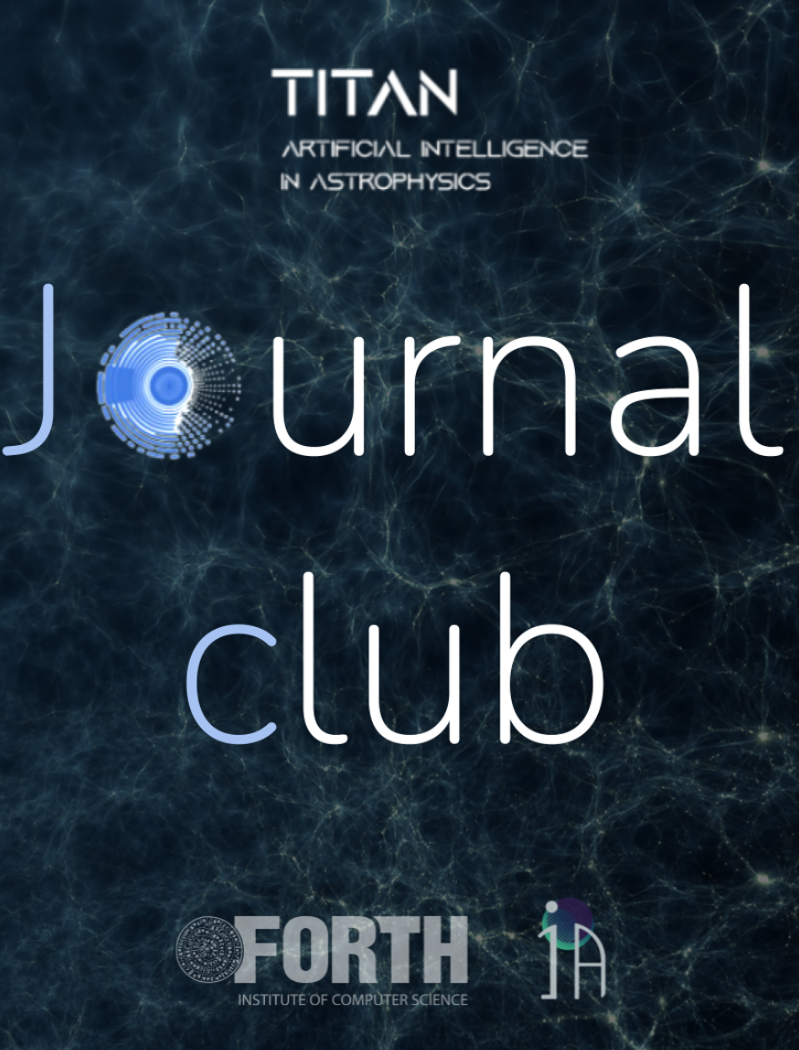
Speaker : Victor Bonjean (Postdoctoral Researcher)
Date : 17th of February
Location: Fotakis meeting room (2nd floor, FORTH main building
Paper Abstract: Convolutional neural networks (CNNs) have been shown to both extract more information than the traditional two-point statistics from cosmologi- cal fields, and marginalise over astrophysical ef- fects extremely well. However, CNNs require large amounts of training data, which is poten- tially problematic in the domain of expensive cos- mological simulations, and it is difficult to in- terpret the network. In this work we apply the learnable scattering transform, a kind of convolu- tional neural network that uses trainable wavelets as filters, to the problem of cosmological infer- ence and marginalisation over astrophysical ef- fects. We present two models based on the scatter- ing transform, one constructed for performance, and one constructed for interpretability, and per- form a comparison with a CNN. We find that scat- tering architectures are able to outperform a CNN, significantly in the case of small training data samples. Additionally we present a lightweight scattering network that is highly interpretable
